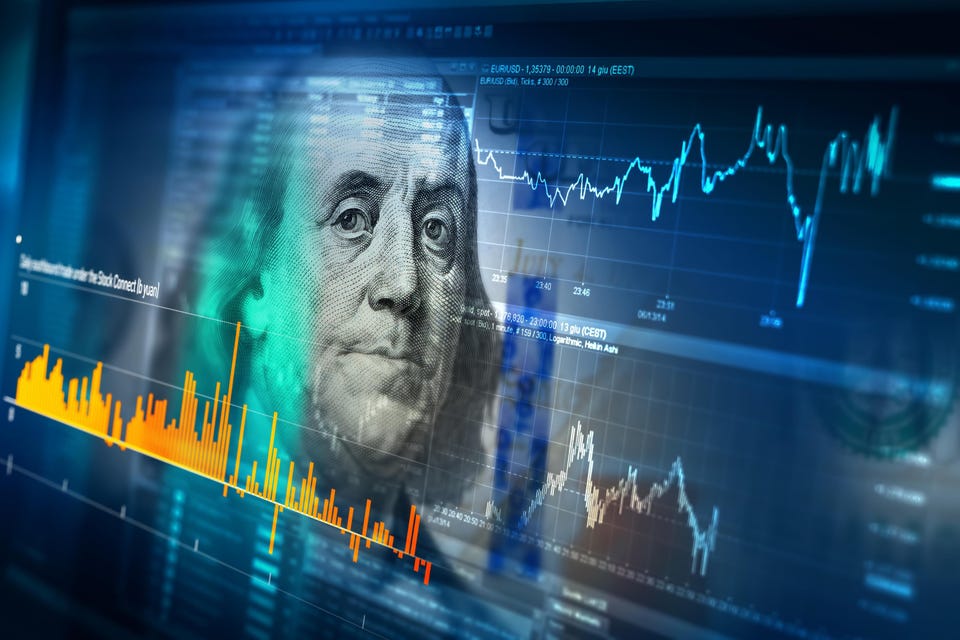People betting that the U. S. dollar’s slide will continue might want to pay more attention to what’s afoot in Asia.
Or, perhaps more to the point, what’s not afoot here. Take China, where officials have been hinting all year about a pivot away from giant growth-killing “ zero Covid ” lockdowns. Myriad times, chatter about a more “dynamic” approach prioritizing vaccinations and testing over shutting down major metropolises excited investors.
Then, new lockdowns ended the party. This pattern played out again this week in Hainan , an island province dependent on tourism. And for investors, it was a reminder that the forces behind the near-zero growth China produced in the April-June quarter—just 0.
4% year-on-year—might not be an aberration. Odds are, the People’s Bank of China will remain in supporting-growth mode. Asia’s biggest economy, remember, has a bit of a property crisis on its hands.
The strains that saw China Evergrande Group and others default late last year are getting worse as the economy slows. Nor is Japan in a position to “taper” anytime soon. In other words, the Bank of Japan won’t be throttling back on bond purchases in ways that push the yen higher.
As Singapore’s recent growth downshift reminds Tokyo, trade-reliant economies are facing a rough second half of 2022. All this augurs poorly for Asian exchange rates—and well for the dollar. Even though the July U.
S. inflation numbers were less frightening than feared—only rising 8. 5% year-on-year versus 9.
1% June—the Federal Reserve is far from done hiking rates. Because Chairman Jerome Powell slept on the job through much of 2021, dismissing inflation as “transitory,” the Fed is now behind the tightening curve and playing catch up. Even so, the U.
S. , for all its troubles, is likely to remain the least ugly of major economies. Europe, which drives nearly one-fifth of world output, is facing headwinds from high oil prices to new Covid-19 waves to softening Asia demand.
The fallout from Russia’s invasion of Ukraine on commodity prices continues to darken the continent’s prospects. Another dynamic playing in the dollar’s favor: a dearth of alternatives. The euro’s recent drop to 20-year lows is a reminder that the common currency isn’t always ready for global primetime.
The yen remains a relatively inward-facing currency, with roughly 90% of government bonds held domestically. The yuan isn’t yet fully-convertible, limiting the internationalization of China’s financial system. That leaves the dollar in the driver’s seat, for better or worse.
And odds are, the dollar’s ascent will kick into a higher gear in the weeks ahead. This, admittedly, seems a paradoxical argument. With U.
S. inflation too close to 9% for comfort, the national debt topping $30 trillion, the Fed tarnishing its credibility and political polarization at a fever pitch, arguments against the dollar would seem to win the day. But the geopolitical shocks of the last several years—events that should’ve damaged trust in the dollar—have only helped the U.
S. currency advance. These include: former President Donald Trump’s trade war; China, Russia and Saudi Arabia looking to supplant the dollar; President Joe Biden and allies freezing some of Moscow’s currency reserves over Ukraine ; the Fed losing the plot on runaway inflation.
Though it seems a lifetime away now, there was once an argument that cryptocurrencies would be rendering the dollar to irrelevance by now. As if. Every time investors seem to conclude that the dollar’s days are over, the reserve currency confounds us.
It’s debatable whether that’s a good thing. Yet the more disorienting the global financial system becomes, the more investors can’t help but run to the dollar for cover. To be sure, that could change anytime, and bewilderingly fast.
And the more the dollar rallies toward, say, 150 yen—from nearly 134 now —the more nations from China to Indonesia might feel the need to weaken their currencies, too. This risk has former Goldman Sachs economist Jim O’Neill worried that another 1997-like Asian crisis could be coming. Analyst Udith Sikand at Gavekal Research says the “risk of an outsized move in the U.
S. dollar is likely to remain high for a material period. Between the possibility of flight-to-safety flows driven by global recession risks and the lingering risk of a dovish pivot allaying market fears of a U.
S. dollar liquidity squeeze, the pendulum could easily swing in either direction. ” Yet for now, the dollar remains an oasis of stability in a world of volatility, uncertainty and zero-Covid policy mistakes—in China, especially—resulting in near-zero growth outlooks.
And odds are, its trajectory these next few months will have dollar bears on losing end of the trade. .
From: forbes
URL: https://www.forbes.com/sites/williampesek/2022/08/12/chinas-zero-covid-fiasco-will-give-dollar-rally-new-life/
